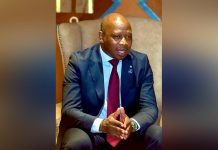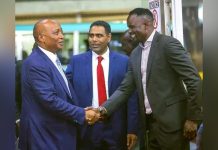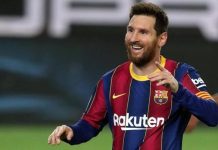By The Post
Africa-Press – Lesotho. As a form of self-care I tend to read books or watch docuseries. I find something mind-soothing about relaxing, reading a book and assimilating new knowledge or watching documentaries and basking in the joy I feel when I am watching and reflecting on the outcome after however many episodes.
I was watching a documentary this weekend and I was reminded of how ill-informed policy makers and providers in their many accolades tend to be about youth behaviour and development.
Do you all remember that one kid in school? The one that could give the teachers kak? The one that was feared by almost everyone at school regardless of how tiny a boy he was in stature?
If it was a girl, she would be famous for ‘leleme le letala’ which means having a raw tongue, unapologetic about everything and nothing, having no filter whatsoever.
This is the girl that could cuss out the whole staff room and whoever resides in it. Come on now, we all know these two kids, they are famed for having zero regard for authority and rules.
“All behaviour is communication” is something I learned when I was in my graduate programme.
The way my Counseling Field Practicum professor explained is that in order to understand why someone behaves the way they do, it is important to know what they have experienced in their lives.
For the longest time we think a quiet child is just quiet and shy. What if they are told to keep it down at home because daddy is a security officer at G4S and he has to be working at night?
When you see a child raise their hand before their classmates in every class to answer questions, have you ever wondered about how their performance at home is complimented? Do you ever ask yourself about the amount of attention that they are getting from their parents, subsequent to the incessant need to secure every teacher’s attention in class?
Deep breaths mommies, I am not about to clamp the wings off your bundles of joy. I am merely drawing attention to behavioural conditioning, reinforcements and/or rewards as well as punishment.
I will not go into this, the work B F Skinner aka the father of operant conditioning would be a helpful resource to explore. The general idea here is that children, adolescents, and teenagers are usually communicating through their behaviours.
Never mind the fact that their vocabulary to explain how they are feeling or what is bothering them is limited and is still undergoing development. I worry that sometimes we miss their communication and equate it with bad behaviour.
Ngoana o utloa ka letlalo we say. We punish the behaviour and hope that it will not repeat itself. At this point, it can be the case that we start realising that while ours as punishers work as Basotho, it can also unintentionally lead to childhood trauma that is guaranteed to show up later in their adult life.
On the other side of the globe, we have what is rather an integrated approach. For example, if an eight-year-old was being disruptive, chaotic, inattentive, or behaving out of character at school, the teacher is tasked with the responsibility of connecting the child with the school counsellor.
It becomes a whole process. The school counsellor will play their part and if it feels like there are problems at home, Child Protective Services (CPS) is usually notified. CPS officer(s) will conduct a home visit to determine the living situation at home.
If they find anything worrisome like lack of food, child neglect, child abuse or anything impacting the child’s wellbeing they will either remove the child and place him in foster care or enlist the help of mental health providers and a social worker.
When I meet with children like this, we explore various forms of therapeutic interventions to help them cope with their challenges and continue to live a fulfilled life.
Now, we lack this system or coordinated nehelatsano ea mosebetsi in Lesotho. What do we have that we can explore in uplifting the wellbeing of the young ones? Do not quote me on this but I can think of multiple ways.
In fact, some of these interventions have been implemented already. Since we lack foster care homes, we can rely on what we have, which is the extended family system, community connectedness and the school system.
We can rely on what the Lesotho Defense Force (LDF) has been doing, working with troubled teenagers and young men. We can endorse the many projects uplifting girl children and young boys.
Here is something else we can do, we can make it mandatory for schools to have in-house counsellors. We can equally invest in cognitive testing services to assess functioning in children. Bear with me, I am solution-oriented.
While we are working towards uplifting the youth, we will be responding to another problem of being in possession of skilled personnel and the tools to assess learning disabilities and cognitive impairments.
These are problems with early childhood onset. The earlier that we can identify them (if any), we can be better situated to have healthier and thriving young ones. School is for children what workplace is for adults. There has to be a healthy balance between it and home life.
We have countless initiatives towards workplace wellness, what about wellness in schools I wonder? I think expecting teachers to embark on this role is unfair, especially in Lesotho where they are not trained in wellness but education.
Guaranteed we do have a handful of teachers that have studied towards educational psychology. A Google search result indicates that educational psychologists are concerned with children’s learning and development.
They use their specialist skills in psychological and educational assessment techniques to help those having difficulties in learning, behaviour, or social adjustment.
As the country continues to celebrate the Roger Federer Foundation’s generous donation of nearly M60 million, may we equally be practical in responding to the needs of the children it is targeted towards.
Let us constantly remind ourselves that equitable quality early education in public primary schools is more than attending classes and leaving ha tšepe e lla ka 3:30pm.
It requires that we recognise the needs of these students in and outside the classroom. I beg of you, please have a clear way of tracking project indicators.
Be SMART in how you measure impact and effectiveness of the project. I keep saying project because that money has a start and an end. It will run out.
When it does, let us plan to showcase BASOTHO PROMISE STUDENTS that we can reference as success stories of the Roger Federer Foundation. If you are going to make new hires, be it because they are adequately skillful in being implementers and gatekeepers of this donation.
If letlo arolelana hlooho ea ntsi with the already existing local partners and stakeholders, can it be the ones that are already doing the work? If you are planning to bring in specialists to spearhead the educational projects, kindly search in your own backyard before casting the net in rivers outside Lesotho’s borders.
May Lesotho’s leadership and the Ministry of Education and Training be intentional and purposeful in how they distribute this funding. Until Next Time!
https://www.thepost.co.ls/youth-behaviour-and-development/
For More News And Analysis About Lesotho Follow Africa-Press






